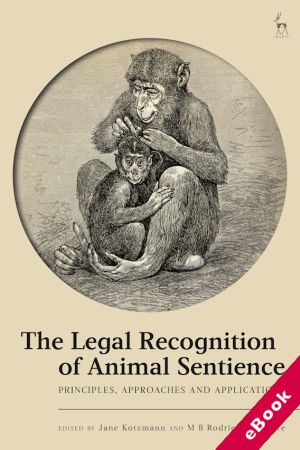
The device(s) you use to access the eBook content must be authorized with an Adobe ID before you download the product otherwise it will fail to register correctly.
For further information see https://www.wildy.com/ebook-formats
Once the order is confirmed an automated e-mail will be sent to you to allow you to download the eBook.
All eBooks are supplied firm sale and cannot be returned. If you believe there is a fault with your eBook then contact us on ebooks@wildy.com and we will help in resolving the issue. This does not affect your statutory rights.
This book explores the movement towards the recognition of animal sentience in the law. It explores some first principles underpinning the recognition of animal sentience, including the nature and scope of sentience provisions, the connection between sentience and empathy, drafting issues, and the relationship between sentience recognition and animal rights. The book highlights the operation of animal sentience provisions in several jurisdictions throughout the world and considers some sector-specific applications and limitations of animal sentience recognition. The first book of its kind, it draws together different perspectives as to what this novel turn in the law might mean and where it might lead. The chapters provide a full picture of what the recognition of animal sentience might entail for humans, animals, and our environment, as well as the experiences of different legal jurisdictions in pursuing recognition of animal sentience. This collection is an essential read for both practitioners and academics alike, as well as any group seeking to advance the interests of non-human animals.